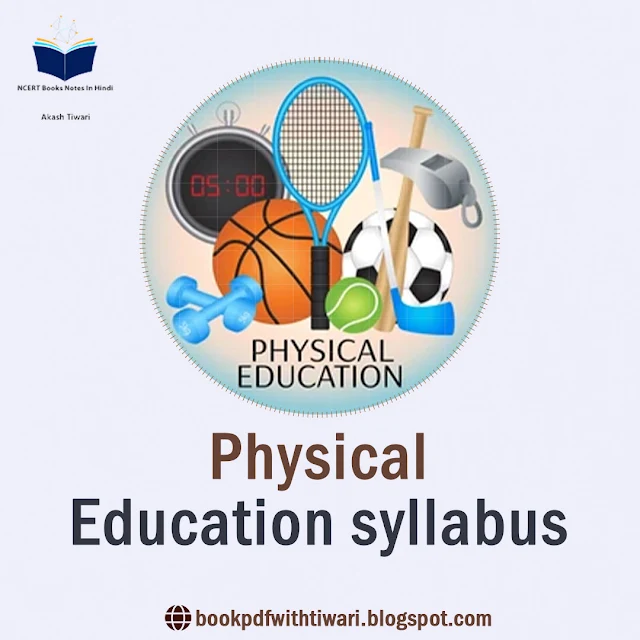Physical Education Introduction:-
Class 11 Physical Education syllabus:
Theory:
Practical:
Physical Education FAQ's
What is Physical Education (PE)?
Physical Education is an academic subject that involves the study of physical fitness, sports, and activities, as well as the development of physical skills and fitness levels.
Why is Physical Education important?
Physical Education is important because it promotes physical fitness, improves health and well-being, and helps develop teamwork, leadership, and other life skills. It can also enhance academic performance and overall quality of life.
What are the benefits of regular physical activity?
Regular physical activity can provide numerous health benefits, including reducing the risk of chronic diseases such as obesity, diabetes, and heart disease, improving cardiovascular and respiratory health, enhancing mental health and cognitive function, and promoting overall physical fitness.
What kind of sports and activities are typically covered in Physical Education classes?
Physical Education classes can cover a wide range of sports and activities, depending on the curriculum and the interests of the students. Some common activities include team sports such as basketball, volleyball, and soccer, individual sports such as running, swimming, and tennis, and fitness activities such as yoga and aerobics.
What is the role of a Physical Education teacher?
The role of a Physical Education teacher is to educate students about physical fitness, sports, and activities, and to help them develop the skills and knowledge needed to maintain a healthy and active lifestyle. This includes designing and delivering curriculum, assessing student progress, providing feedback and support, and promoting positive attitudes toward physical activity and fitness.
How can I stay motivated to maintain a regular exercise routine?
There are many strategies for staying motivated to exercise regularly, including setting realistic goals, tracking progress, finding an exercise buddy or support group, varying your routine to keep it interesting, and rewarding yourself for meeting milestones or achieving goals. It can also help to focus on the health and fitness benefits of regular exercise, and to make physical activity a regular part of your daily routine.
Can Physical Education classes be substituted with other activities?
In some cases, students may be allowed to substitute Physical Education classes with other activities, such as participation in school sports teams or other physical activities outside of school. However, this typically depends on the school's policies and the approval of the Physical Education teacher or school administration.
What should I wear to a Physical Education class?
Students are typically required to wear appropriate athletic attire to Physical Education classes, including comfortable and breathable clothing, athletic shoes with good support and traction, and any protective gear or equipment required for the activity.
Is Physical Education mandatory in schools?
In many countries, including the United States, Physical Education is a mandatory subject in public schools. However, the specific requirements and policies may vary depending on the state, school district, or individual school.
Can Physical Education help with weight loss?
Regular physical activity, including participation in Physical Education classes, can be an important component of a weight loss or weight management program. However, weight loss also depends on factors such as diet, genetics, and overall lifestyle, and should be approached holistically rather than relying solely on exercise.
Are there any risks associated with Physical Education or sports activities?
Like any physical activity, there is a risk of injury associated with participating in Physical Education or sports activities. However, this risk can be minimized through proper warm-up and stretching, use of appropriate protective gear or equipment, and following proper technique and safety guidelines.
Can Physical Education improve mental health?
Regular physical activity, including participation in Physical Education classes, has been shown to have a positive impact on mental health and well-being, including reducing stress and anxiety, improving mood and self-esteem, and promoting better sleep.



